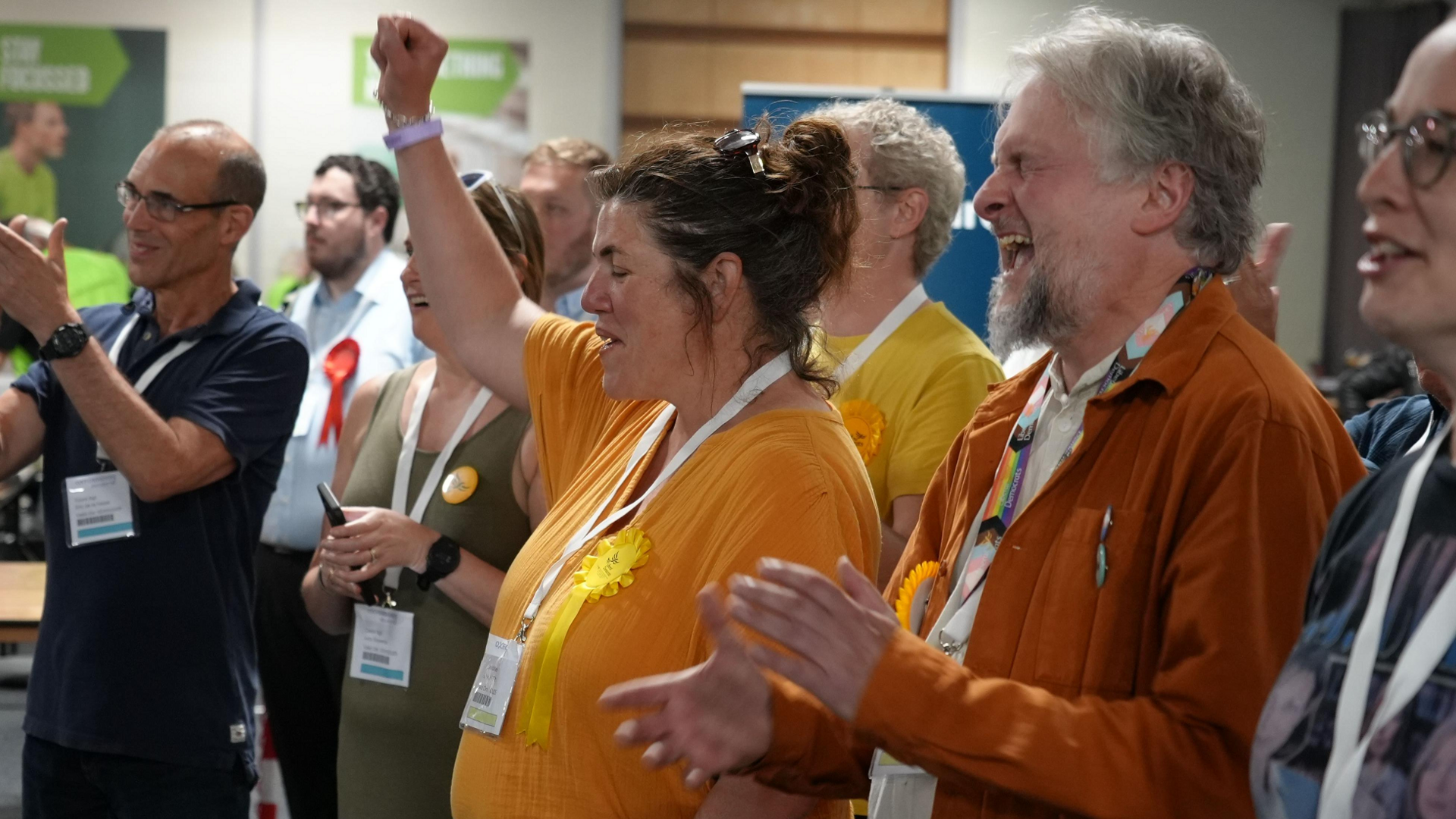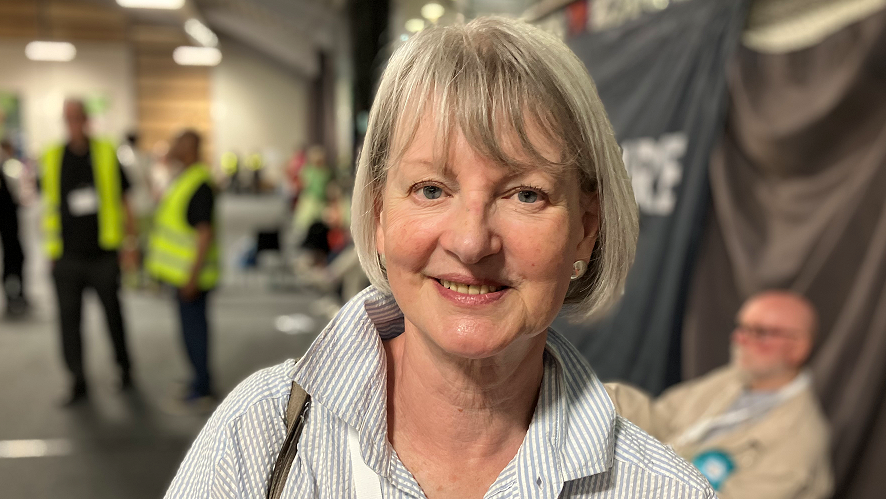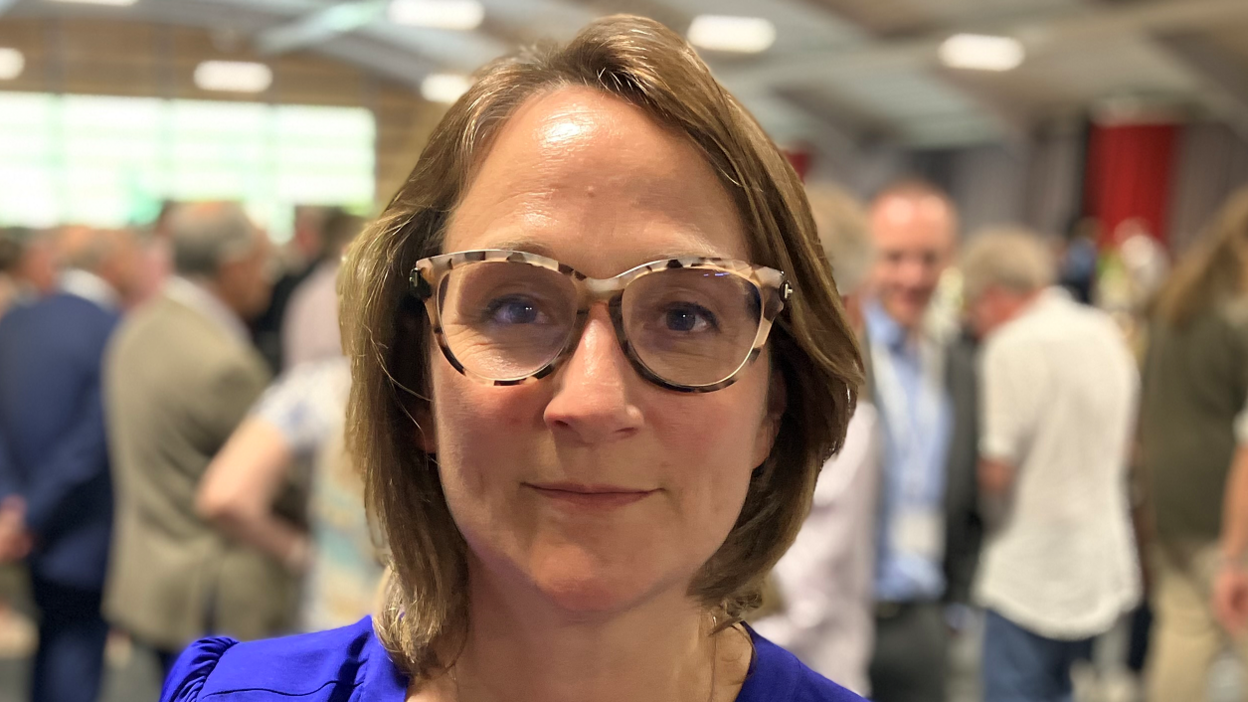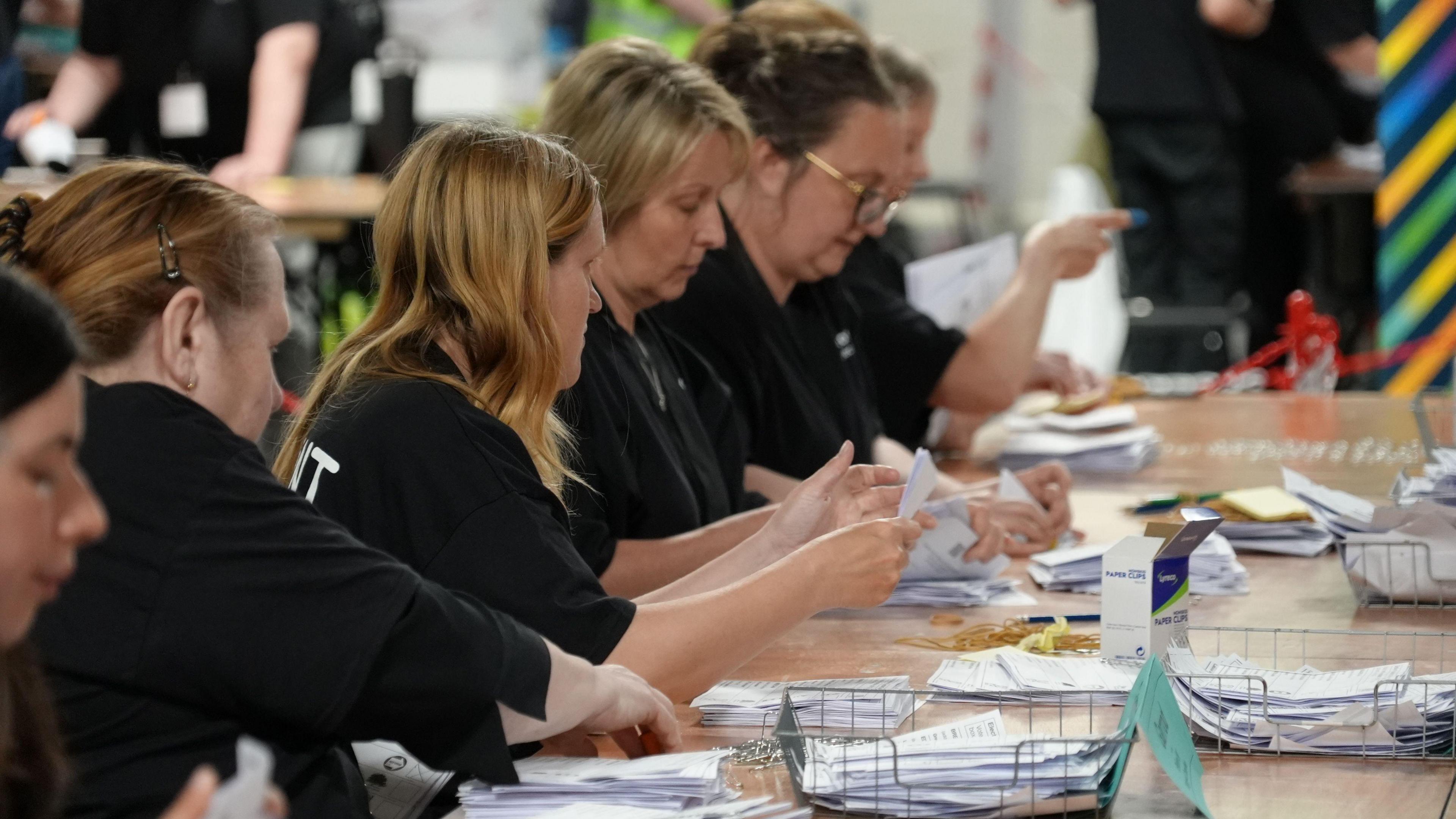Lib Dems win control of Oxfordshire County Council

Liberal Democrat councillor Bethia Thomas celebrates an election win at the count in Abingdon
- Published
The Liberal Democrats have won control of Oxfordshire County Council for the first time as the Conservatives lost more than half of their seats.
The Lib Dems now have 36 seats on the authority of a possible 69, up from 21 at the 2021 election.
The Conservatives now have 10 seats having also won 21 four years ago. Labour lost three seats but become the authority's second largest party with 12 councillors.
The Green Party is its fourth largest party with seven councillors, up from three, and Reform UK won their first elected seat to the authority in Didcot South.

Liz Leffman, the county council's leader since 2021, said she was "delighted" with the results
Lib Dem Liz Leffman, the council's current leader, said she was "absolutely delighted" with the results, which she said were "everything I could have hoped for".
"We have some very hardworking MPs who have been doing a great job in their constituencies so their profile is very high," she said.
"But we've also got very hard working candidates who really care about their community and that's been the reason we have done so well."
Conservative group leader Eddie Reeves moved to fight a new division on Thursday but lost in Cropredy and Hook Norton, coming 53 votes behind newly elected Lib Dem councillor Chris Brant.
Caroline Newton, who came third for the Conservatives in Chalgrove and Thame West behind the Lib Dems and Reform UK, said Reform had performed better than her party had expected.
"We've done a lot of door knocking, we've done a lot of canvassing and we did not pick up that much Reform support," she said.
"I think we really need to understand what made people decide to vote for a party that does not have local policies. Here they were not competing on local issues – they were campaigning on national issues."

Caroline Newton said her party had underestimated the support Reform had locally
Hao Du, who won Didcot South, said he was "exhausted and very honoured to be the first elected Reform UK councillor" in Oxfordshire.
"Firstly there's obviously a great deal of frustration with the establishment. Didcot South can feel a long way from the centre of power in Oxford. [Residents] have felt ignored frankly for far too long.
"I worked very hard in my campaign. I knocked on a lot of doors and was very sincere and genuine with people about the issues we face."
Although Reform UK had two councillors on the authority before Thursday's election, one defected from the Conservatives while the other had previously been an independent. Both had been elected as Conservatives in 2021.
All councillors are due at the authority's annual general meeting on 20 May.
Extra seats were created in this election after boundary changes increased the number of councillors from 63 to 69.
From May 2021, the authority was run by a coalition of the Lib Dems, Greens and Labour, but Labour left in 2023 following the publication of a damning report into provision for children with disabilities and special educational needs (SEND).
The council was then run until the election as a minority administration of Lib Dems and Greens.
Are local authorities changing?
Oxfordshire County Council may not exist for too much longer, the authority will still have time to implement - or scrap - major policies such as planned new traffic filters.
Thursday's election is likely the last time Oxfordshire residents are asked to elect county councillors, as local government could be reorganised in the next four years.
The government has announced its intention to scrap the current two-tier system of local government used in Oxfordshire in which residents are served by a city or district council and the county council.
Some areas have been "fast-tracked", meaning they will not have planned elections this May and will instead push on with reorganisation and devolution.
Oxfordshire was not successful in its bid to be included in the fast-track scheme, but has been told by the government to prepare plans for reorganisation, with changes set to be in put in place in 2028.
After this point, the county council will no longer exist and will be replaced by one or more unitary authorities and a regional elected mayor.

The count was held at the White Horse Leisure Centre in Abingdon
Get in touch
Do you have a story BBC Oxfordshire should cover?
You can follow BBC Oxfordshire on Facebook, external, X (Twitter), external, or Instagram, external.